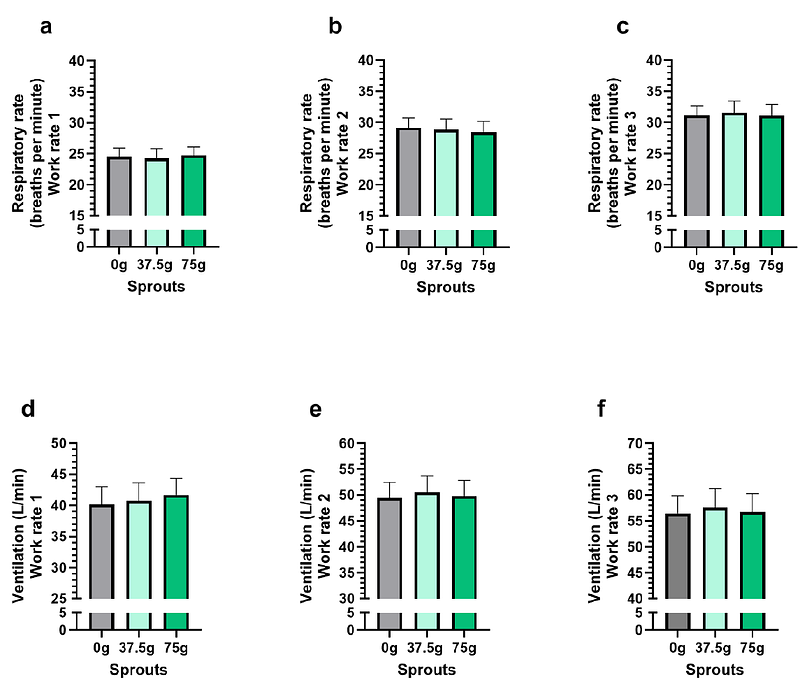A glucosinolate-rich beverage lowers blood lactate concentrations during submaximal exercise

A glucosinolate-rich beverage lowers blood lactate concentrations during submaximal exercise
Vinge, F.; Tillqvist, E.; Horwath, O.; Apro, W.; Larsen, F. J.; Sundqvist, M. L.
AbstractGlucosinolate-rich broccoli sprouts combined with intense exercise training for 7 days have been shown to reduce blood lactate concentrations during exercise, attenuate hypoglycemic events, improve physical performance, and reduce markers of oxidative stress. This study aimed to investigate the acute, dose-dependent effects of glucosinolate-rich red kale sprouts (GRS) on blood lactate and blood glucose following the ingestion of three different doses. Fifteen healthy participants consumed 37.5 g or 75 g of GRS or an isocaloric placebo blended into a beverage on three separate occasions. The participants cycled on an ergometer at three submaximal work rates before and three hours after ingestion. Measurements of oxygen uptake, substrate-level oxidation, blood lactate, blood glucose, and ratings of perceived exertion were taken before and after each cycling interval. The intake of glucosinolate-rich sprouts acutely decreased blood lactate levels during submaximal cycling and increased blood glucose levels at rest. The largest reduction in blood lactate was observed at the 37.5 g dose compared to placebo, where the concentration was 0.4 +/- 0.2 mM lower at work rate close to threshold (p = 0.003). For the 75 g dose, the reduction in blood lactate was 0.25 +/- 0.1 mM (p = 0.02). No significant effects were seen in the lowest work rate. The mean resting glucose level was 3.9 +/- 0.1 mM following placebo, compared to 4.3 +/- 0.1 mM after intake of either 37.5 g or 75 g dose (p < 0.01, respectively). These findings suggest that glucosinolate-rich broccoli sprouts have a lactate-lowering effect during submaximal efforts, which may have important implications for supplementation for improving endurance performance.